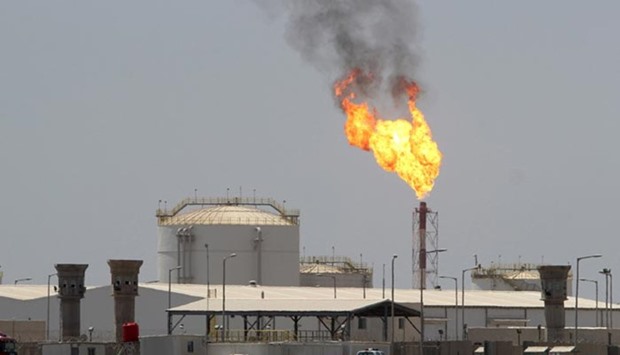Opec warned on Wednesday that the world remains awash with crude ahead of a crunch meeting in Doha between cartel members and other major producers to discuss a production freeze to boost the oil price.
The Organisation of the Petroleum Exporting Countries said in its April monthly report that oil prices rose more than 20% in March, continuing a slow recovery from the huge drop of 2014-15.
"Positive market sentiments continue to arise from the output freeze plan being considered by major crude exporters," as well as an expected fall in output in the US and elsewhere, Opec said.
"Nevertheless, hurdles prevail as oversupply persists and inventories remain high," it warned.
All oil producers, not just those in the 13-nation Opec but also non-cartel members like Russia, have suffered from the more than 60% drop in oil prices since mid-2014.
An agreement in Doha on Sunday to freeze production would, in theory at least, help boost prices and help repair their in some cases - for example Venezuela - tattered public finances.
But a deal among the 15 or so oil producers representing around 75% of global output expected at the meeting is far from guaranteed.
Opec member Iran has so far rejected attempts to freeze production as it ramps up output following the lifting of sanctions this year as part of 2015's nuclear deal with major powers.
Saudi Arabia's deputy crown prince Mohamed bin Salman has said the kingdom, Opec's top producer, would only freeze output if Iran and other major producers are also on board.
Oil prices fall on producer meeting doubts, stronger dollar
Oil futures traded lower on Wednesday on concerns that the Doha meeting will do little to trim oversupply and a strengthening dollar.
Brent crude was down 34 cents at $44.35 a barrel at 0916 GMT, after hitting a four-month high in the previous session, when it settled up $1.86.
US crude declined by 49 cents to $41.68 a barrel after gaining $1.81 the day before.
Comments by Saudi oil minister Ali al-Naimi in the al-Hayat newspaper in which he confirmed his country's position that an outright production cut was out of the question weighed on prices, traders said.
"Forget about this topic," al-Naimi told the paper, when asked about any possible reduction in his country's crude output.
Iranian oil minister Bijan Zanganeh does not plan to attend the Doha meeting but Iran will be sending a representative, an Iranian journalist from the Seda weekly wrote on his twitter account on Wednesday.
A firmer US dollar, which makes dollar-denominated commodities more expensive for holders of other currencies and concerns over rising US crude inventories also pressured prices.

